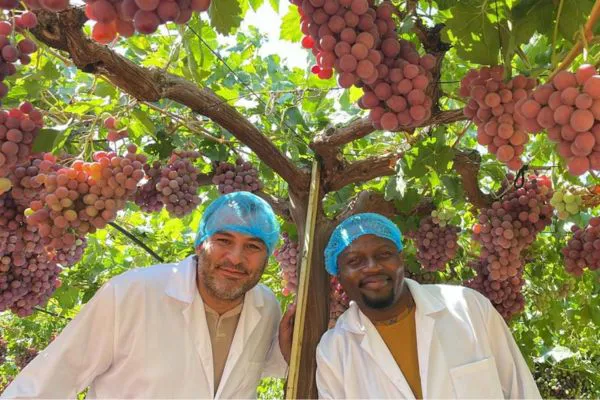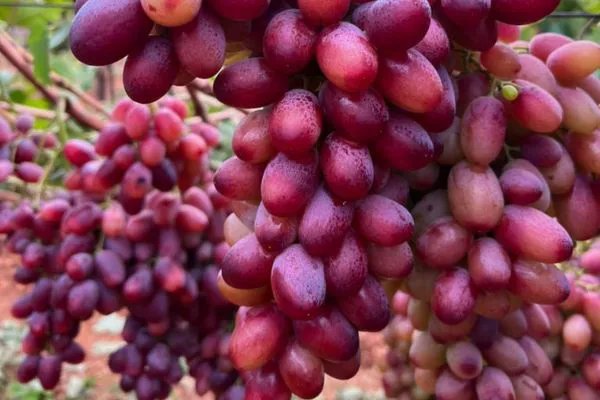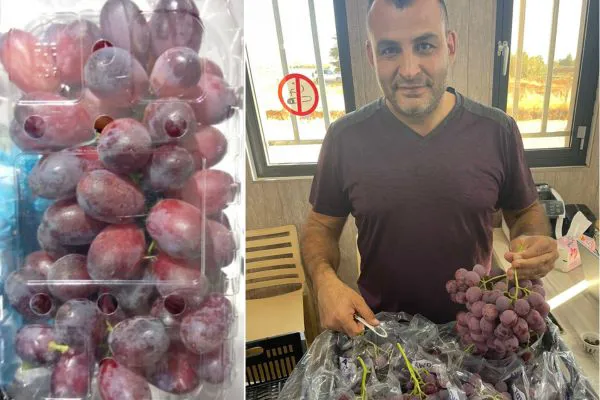The Lebanese table grape is becoming increasingly well known on the international markets and appreciated by consumers, boosted by several assets but also hindered by great difficulties. Mehdi Awdi, a Lebanese grapes exporter, comments on the industry's achievements and difficulties.

Mehdi says: "Our family farm has been producing various types of fruits for three generations. When we realized Lebanon's advantage in the grape industry and its global potential, we decided to focus mainly on grapes. So we turned our farm into a packing and export center in order to be competitive on an international level. Supported by family ties in Brazil and the United States, we used these markets as a platform to reach distant destinations, with considerable success but also with great difficulties."
Lebanese table grapes, positioned in the high-end market, enjoy many advantages, the main one being the timing of the season, adds Mehdi: "Our season is slightly longer than Spain's due to the different altitude of our farms. During the Lebanese grape season, which runs from July to December, there is little competition from other grape origins. Our season is after the end of Egypt and just before South Africa starts exporting its table grapes. Although countries such as Spain, Italy, the United States, and China also harvest grapes at the same time, our main competitors in the global market are Spain and Egypt."

In addition to the gap between competing seasons, Lebanese table grapes are appreciated by customers for their quality and varietal diversity, Mehdi explains, "We have observed a growing preference of our customers for Lebanese grapes due to their superior quality. One of the contributing factors is the reduced rainfall in Lebanon during the harvest period, which extends the shelf life of our crops. The demand for seedless grapes, our flagship product, is also high. Lebanon also benefits from a strategic geographical position, at the crossroads of three continents, which allows us to deliver quickly to Asia, Europe, and Africa.
However, Lebanese exporters also face major challenges, the grower says: "Water supply is our main challenge. Every season we face the difficulty of securing water for our farms. Our dependence on groundwater wells makes us vulnerable to their eventual drying up due to the lack of rain and snow during the winter season in Lebanon."
Another difficulty at the commercial level - there are markets where the producer has not yet managed to set foot: "We are constrained from exporting to India, Indonesia, China, Vietnam, Saudi Arabia, etc... These are big markets for grapes, but the lack of agreements between our respective governments prevents us from accessing them at the moment."

The producer also complains of the fierce competition with Egypt, "Egyptian growers produce larger and larger volumes each year, far exceeding the demand. These huge quantities allow them to store in cold rooms and continue to supply the market even after their season ends in September, at low prices, while the Lebanese production has just arrived on the market."
"Despite this, we have made significant progress in recent years," adds Mehdi. "Traditionally, Lebanese products were mainly exported to Middle Eastern countries. However, advances in agricultural and transportation technologies, as well as globalization, have allowed us to reach more distant markets. Currently, we export to many countries in Europe, Asia, Africa, and South America.
"We have also started working with our government for its essential role in opening new markets, not only for table grapes, but also for all the excellent products for which Lebanon is known, and we hope to see Lebanese grapes in supermarkets from Colombia to Korea soon," he concludes.
For more information
Mehdi Awdi
Awdi Gardens
Tel: +961 70 878 606
Email: m@awdi.biz
